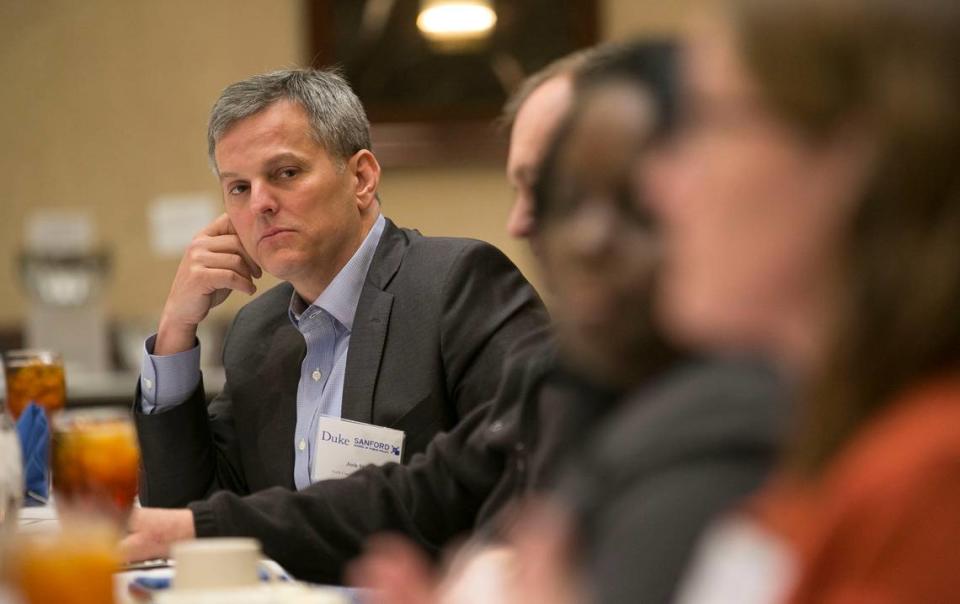A U.S. Supreme Court decision stripping protections from the billionaire owners of OxyContin maker Purdue Pharma means it may be years before North Carolina sees payouts from the company over its role in the nationwide opioid crisis.
Thursday’s ruling, though, will not affect the vast majority of the approximately $1.5 billion North Carolina will collect in the coming years through settlements with more than a dozen other companies implicated in the epidemic.
Lawsuits in multiple states have been pending for years against Purdue and members of the Sackler family, which controlled the company as it deceptively marketed its profitable opioid as less addictive than other painkillers.
Under a settlement and bankruptcy plan announced in 2021, the company and the Sacklers agreed to pay billions to state and local governments nationwide, a figure that included an estimated $100 million for North Carolina.
But the high court blocked that plan Thursday, ruling the agreement was faulty because it could not legally protect Sackler family members from future lawsuits — a provision of the settlement challenged by the trustee overseeing Purdue’s bankruptcy on behalf of the U.S. government.


Attorney General Josh Stein said in a statement Thursday morning that the high court’s ruling “means we now have to go back to the negotiating table.”
“Purdue and the Sacklers must pay so we can save lives and help people live free of addiction,” Stein said in the statement. “If they won’t pay up, I’ll see them in court.”
Writing for a 5-4 majority that split the conservative and liberal blocs, Associate Justice Neil Gorsuch noted that such arrangements generally require debtors seeking legal immunity to declare bankruptcy and place “substantially all of their assets on the table.”
The Sacklers, Gorsuch wrote, have not done that.
“Yet, they seek an order discharging a broad sweep of present and future claims against them, including ones for fraud and willful injury,” Gorsuch wrote in his opinion, joined by justices Clarence Thomas, Samuel Alito, Amy Coney Barrett and Ketanji Brown Jackson. “In all of these ways, the Sacklers seek to pay less than the code ordinarily requires and receive more than it normally permits.”
As part of the settlement agreement and the company’s bankruptcy terms, the Sacklers had agreed to pay billions into a fund that would eventually flow to states for mitigating the impacts of the opioid epidemic.


Purdue and its owners made billions off the sale of OxyContin, released in 1995 amid a marketing blitz that depicted the narcotic as a safe and effective way to manage pain. Their efforts, Stein said in Thursday’s statement, “helped create and fuel an opioid crisis that is still killing North Carolinians – 12 people overdose every day on average.”
After lawsuits against the company over its role in the opioid epidemic began to mount, however, the Sacklers took steps to protect themselves.
“Fearful that the litigation would eventually impact them directly, the Sacklers initiated a ‘milking program,’ withdrawing from Purdue approximately $11 billion — roughly 75% of the firm’s total assets — over the next decade,” the Supreme Court decision notes.
Stein first filed suit against Purdue in 2018, and the Sacklers separately more than a year later. Since then, the state has joined multi-state actions against other manufacturers, distributors, pharmacies and marketing firms involved in the opioid market.
Some of the first payments in those settlements began arriving in the 2021-2022 fiscal year and are scheduled to continue through at least 2038-2039, split between the state and more than 100 North Carolina counties and municipalities.
From 2000 to 2022, more than 36,000 North Carolina residents have died from drug overdoses, including prescription and illicit opioids, according to the N.C. Department of Health and Human Services.
